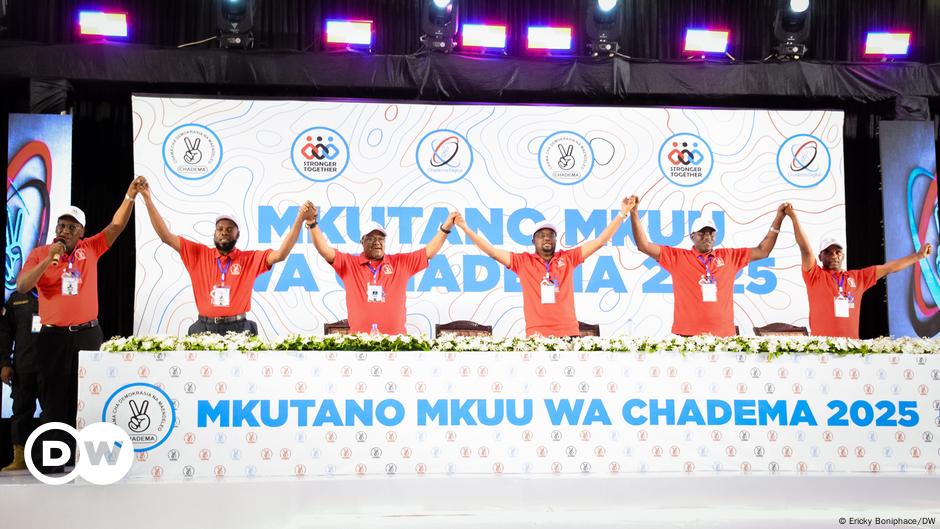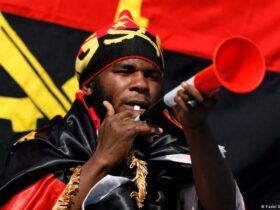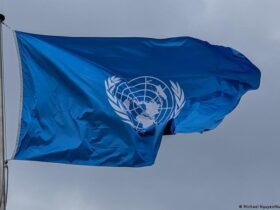The Tanzanian Party for Democracy and Progress, commonly known as CHADEMA, has a long and storied history. It was established in 1992, soon after Tanzania adopted a multi-party system of democracy.
Despite its efforts, Chadema has yet to achieve an electoral victory over the ruling CCM, which has ruled the country since it became a united republic in 1964. This year, in October, Chadema will get another chance when Tanzanian voters go to the polls. Their presidents and members of parliament.
Party chairman Freeman Mbowe is uniting his members to form a united front. Addressing party members gathered at the Chadema headquarters in Dar es Salaam last Thursday. “When we leave Dar es Salaam, our unity must be stronger than ever,” Mbowe stressed.
From 21 to 22 January, Chadema members gather in Dar es Salaam to vote on the party leadership, including who can become the party’s flag bearer in the election. In the race, long-time president Mbowe faces his deputy Tundu Lissu. The stakes at the two-day party congress extend beyond the presidency to the future direction of the party.
Party’s ideology different from that of its two rivals
While Mbowe is supportive of continuity, arguing that the party’s past successes should not be ignored, Lissu has called for transformational changes. In an interview with DW, Lissu criticized the party’s resource distribution, noting that Chadema’s assets are often concentrated in its headquarters in Dar es Salaam rather than reaching grassroots levels in regional areas.
Lissu also stressed the need for a structured leadership change. Lissu said, “When we started in 1993, party statutes imposed term limits. We abolished them in 2006 because the party was small and lacked adequate leadership.”
With the party having grown significantly, Lissu stressed that now is the time to restore such mechanisms. “We must create pathways for new people to enter the party leadership. Only then can we formulate new ideas and strategies.”
united against the ruling CCM
Despite their differences, the two top candidates are united in their opposition to the government of President Samia Suluhu Hassan. “We must never lose hope,” Mbowe declared, urging a coalition with other parties, civil society and academia to push for electoral and constitutional reforms. “This way we can create national pressure for free and fair elections.”
Last November, Chadema sharply criticized the conduct of local elections, accusing it of improperly disqualifying candidates and reporting the death of three party members in election-related incidents. The ruling CCM – which won over 98% of the vote – was accused of electoral manipulation.
Initially, President Samia Suluhu Hassan’s tenure began with optimism. Upon coming to power in 2021 following the sudden death of his predecessor John Pombe Magufuli during the COVID-19 pandemic, Hassan promised to reverse many of his controversial policies. Magufuli’s tenure was marked by heavy restrictions on civil liberties and a denialist approach to the pandemic that left Tanzania isolated on the global stage. Suluhu appeared ready to take a more moderate path.
“The business community is enjoying working with him as president,” Magid Mjengwa, a Tanzanian political analyst based in Dar es Salaam, told DW. “He made it possible to create an environment that allowed more investors to come to Tanzania and the economy to prosper,” he said.
Kidnappings are increasing
However, independent political analyst Lavalette Lawakatare describes Tanzania’s current [political] The situation is very disturbing. “There has been very little concrete progress under the leadership of President Suluhu,” he told DW. “When marginalized voices are silenced, it is a cause for concern,” Lavakatare said. He said the primary role of the state is to protect its citizens.
“When Tanzanians feel unsafe in their own country, it is worrying.”
Earlier this month, Tanzanian political activist Maria Sarungi Tsehai was abducted by unknown persons in Kenya’s capital Nairobi. However, due to the prompt intervention of Amnesty International and increasing pressure for his release on social media platforms, he was released a few hours later. “I am one of the few who has survived such an ordeal,” Sarungi told DW in an interview. “In Tanzania, many people who disappear are never found.”
Some observers suspect that the Tanzanian government may have been behind Sarungi’s kidnapping, pointing to the government’s silence following the incident. While Lavakatare avoided placing direct blame on President Suluhu’s regime, he stressed that responsibility ultimately rested with the administration. “If Tanzanians are not protected, how can we expect to remain part of the international community?” he asked. The systematic kidnappings and arrests of government critics are serious allegations against President Suluhu and the ruling CCM.
Despite the risks, Sarungi remains steadfast in his work. She said, “I fight for human rights, freedom of expression, freedom of the press and good governance. Any government should welcome cooperation with a person like me.”
Does CHADEMA need a ‘new’ leader?
Some political observers argue that changing CHADMA’s leadership could change the dynamics. “Chairman Mbowe has done remarkable work in building Chadema. But now is the time for a vibrant opposition with new ideas and methods to hold the government accountable,” Lwakatare said.
Tundu Lissu is seen as a candidate uniquely suited to challenge the status quo. Known for his unwavering courage, Lissu has become a symbol of resilience. In 2017, he survived an assassination attempt in Dodoma, suffering multiple gunshot wounds.
A few weeks before the attack, Lissu reported being followed by intelligence agents. After years of medical treatment in Belgium, he returned to Tanzania in 2023. Still, questions remain about his commitment if he loses the leadership race. Lissu has said that he wants to remain loyal to Chadema regardless of the outcome.
George Njogopa and Florence Majani in Dar es Salaam and Thelma Mwadzaya in Nairobi contributed to this article
This article was translated from German
Edited by: Crispin Mavakideau






Leave a Reply